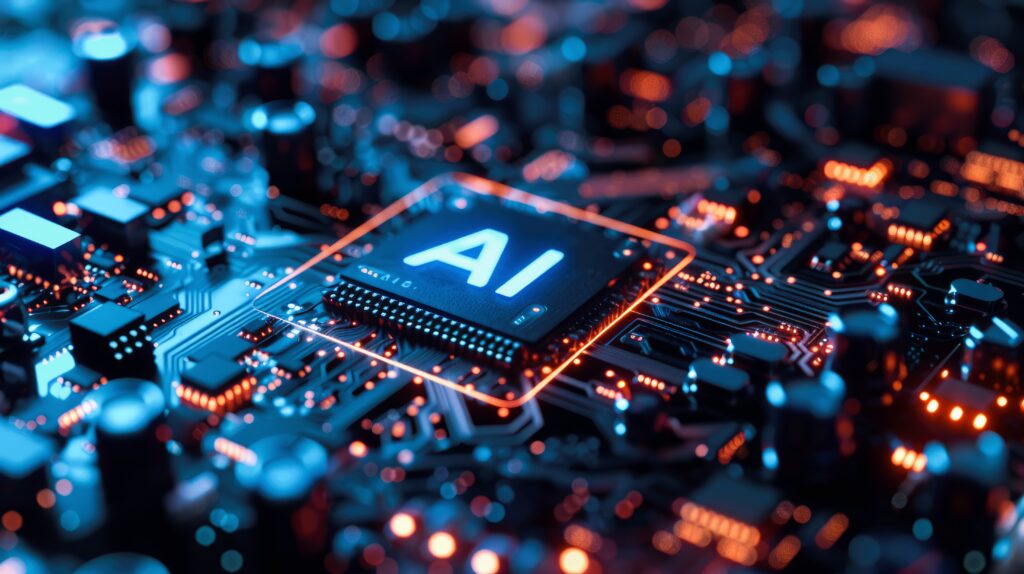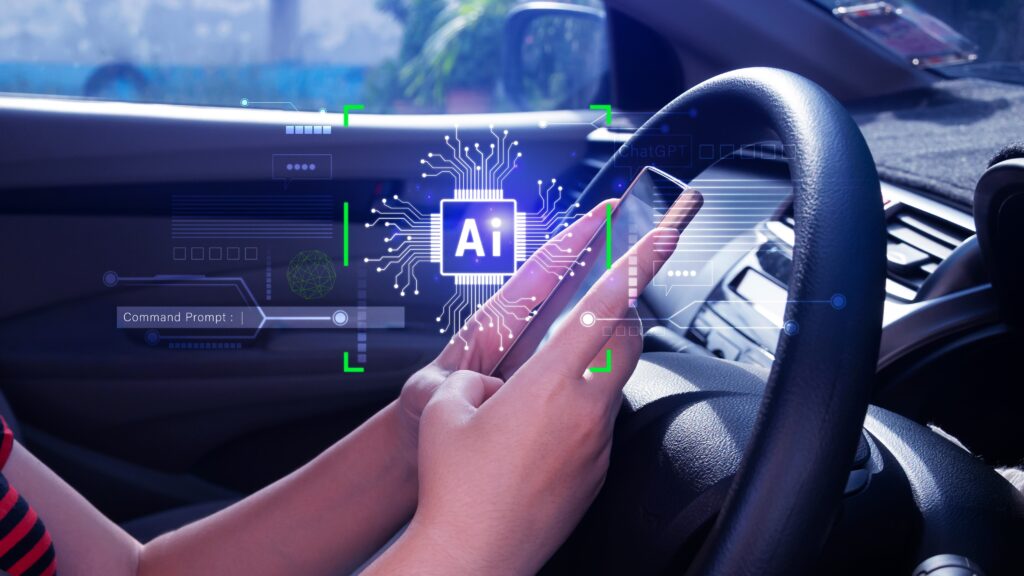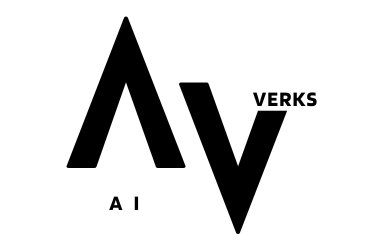
Introduction
Quantum AI is emerging as one of the most transformative technologies of the 21st century. Imagine a computer that can process immense amounts of data simultaneously, solving problems that would take classical computers thousands of years in a matter of seconds. That is the promise of Quantum AI, a powerful convergence of quantum computing and artificial intelligence (AI). As AI continues to revolutionize industries helping companies forecast market trends, improve healthcare diagnostics, and automate tasks quantum computing offers the potential to elevate these capabilities to an entirely new level.

Traditional AI systems are really impressive, but they’re still limited by the hardware of classical computers. These computers use binary bits just 1s and 0s to process information, which makes it harder for them to handle huge amounts of data, especially when training complex models or solving optimization problems. AI has come a long way, but we’re getting close to the limits of what these computers can do. That’s where quantum computing steps in, offering a game-changing solution to break through these barriers.
By leveraging the principles of quantum mechanics, quantum computers use qubits, which can exist in multiple states at once. This allows them to perform multiple calculations simultaneously, vastly increasing computational power. When combined with AI, this enables the development of algorithms and models that can process complex datasets exponentially faster than before. This is particularly valuable in fields like cryptography, molecular modeling, and logistics optimization, where traditional AI models are limited by computational resources.
In this blog, we will explore how Quantum AI is changing the face of computation. We will delve into its fundamental concepts, its real-world applications across various industries, the technical and ethical challenges it faces, and what the future holds for this exciting frontier. As quantum AI continues to advance, the implications for industries, governments, and individuals across the globe are staggering—and this is only the beginning.
Section 1: Understanding Quantum AI

Quantum AI is a field that merges two of the most groundbreaking technologies in modern history: quantum computing and artificial intelligence. But to understand why this combination is so powerful, it’s important to grasp the fundamentals of both quantum computing and AI.
What is Quantum Computing? At the core of quantum computing is the idea of utilizing the strange and counterintuitive laws of quantum mechanics. In classical computing, information is processed in bits that represent either a 0 or a 1. Quantum computers, however, use qubits, which can represent both 0 and 1 simultaneously due to a quantum phenomenon known as superposition. This enables quantum computers to process many possibilities at once.
Moreover, qubits can be entangled, meaning that the state of one qubit is directly related to the state of another, regardless of the distance between them. This entanglement allows quantum computers to perform highly complex operations on vast amounts of data simultaneously, exponentially speeding up computations.
Quantum computing can be likened to an extreme parallel processor that can evaluate many different outcomes in parallel, while classical computers must work through problems one step at a time. This makes quantum computing especially useful for tasks that require evaluating a vast number of possibilities, such as optimization problems, cryptography, and large-scale simulations.
How does AI work? Right now, AI relies on traditional computers to process data and learn from it using algorithms. One key part of AI is machine learning, where algorithms are trained on data to spot patterns, make decisions, or predict outcomes. For example, neural networks, models inspired by how the human brain works, are used in things like speech recognition, image processing, and understanding language.
However, these systems face challenges when tasked with processing massive datasets or optimizing highly complex functions. Current AI systems use brute force methods to solve these problems, which can be slow and resource-intensive. For example, training large AI models, such as GPT models or AlphaFold, takes a considerable amount of time and computational power.
The Fusion: Quantum AI The integration of quantum computing with AI creates Quantum AI, where quantum algorithms enable AI to process data more efficiently and perform more sophisticated tasks. Quantum AI leverages the speed and parallelism of quantum computers to enhance the learning processes of AI models.
For example, quantum computers can significantly speed up the training of machine learning models by evaluating multiple solutions in parallel. This is especially beneficial for optimization problems such as finding the best route for a delivery truck or identifying the most effective drug molecule where classical AI models struggle to process all possible outcomes due to the sheer number of variables involved.
Global Investments in Quantum AI
Countries and corporations across the globe are heavily investing in Quantum AI to gain a competitive edge. The United States, through initiatives like the National Quantum Initiative Act, has made quantum research a priority, with companies like IBM, Google, and Microsoft leading the charge in building practical quantum computers. IBM’s Quantum System One is now accessible for researchers and developers, providing a glimpse of the future potential of quantum computing.
China, on the other hand, has emerged as a fierce competitor, with its government pouring billions into quantum research. Chinese universities and tech firms like Alibaba are exploring quantum AI applications in areas ranging from cryptography to artificial intelligence, aiming to achieve quantum supremacy by the end of the decade.
In Europe, countries like Germany, France, and the United Kingdom are also at the forefront of quantum AI development. Europe’s Quantum Flagship initiative has allocated over a billion euros to quantum research, with a significant portion dedicated to AI integration. In 2024, Germany unveiled its first fully operational quantum AI research lab in Munich, focusing on pharmaceutical and financial applications.
Smaller countries like Canada and Australia are also carving out niches in the global quantum race. Canada’s Quantum Valley is home to some of the world’s leading quantum computing startups, and Australia’s University of Sydney has made groundbreaking advancements in quantum error correction a critical hurdle for making quantum AI a practical reality.
Section 2: Real-World Applications of Quantum AI

Quantum AI is poised to transform several key industries. From healthcare to finance, logistics to climate science, its applications are diverse and far-reaching.
1. Healthcare and Drug Discovery

The healthcare sector stands to benefit immensely from Quantum AI, particularly in drug discovery and personalized medicine. Developing new drugs traditionally takes over a decade and billions of dollars. Quantum AI can shorten this timeline by simulating molecular interactions at an atomic level, something that classical computers struggle to do efficiently.
Quantum algorithms can predict how new drugs will interact with different proteins and molecules, offering insights that would otherwise take years of experimentation. Pfizer, in collaboration with IBM Quantum, is currently leveraging quantum computing to explore new therapeutic approaches for diseases like cancer and Alzheimer’s. These models allow researchers to identify promising drug candidates much faster by simulating molecular behavior in quantum systems.
Global Perspective: In India, the Indian Institute of Science is working on using quantum AI for genome sequencing and predicting disease outbreaks in real-time. Japan’s RIKEN research institute is also exploring quantum-enhanced diagnostics for personalized treatment plans based on a patient’s genetic profile
2. Financial Services and Risk Management

Quantum AI is already being tested by major financial institutions to improve fraud detection, portfolio optimization, and risk management. One of the most time-consuming tasks in finance is running simulations for risk assessment and modeling. With Quantum AI, these simulations can be performed in seconds rather than hours or days.
For example, Goldman Sachs and HSBC are experimenting with quantum algorithms to optimize their trading strategies and develop more accurate models for market prediction. Quantum AI’s ability to evaluate numerous financial scenarios at once makes it invaluable for high-frequency trading and real-time risk management.
Global Case Study: In Switzerland, financial institutions are working with quantum computing firms to improve fraud detection and streamline credit risk assessments. Singapore, with its rapidly growing fin-tech sector, is also leading research into how quantum AI can secure digital payment platforms and cryptocurrencies from emerging cyber threats.
3. Logistics and Supply Chain Management

The optimization potential of Quantum AI in the field of logistics is massive. Supply chains, which involve thousands of moving parts manufacturing, transportation, inventory management can be optimized using quantum AI to reduce costs and improve efficiency.
By analyzing real-time data from multiple sources (like traffic conditions, shipment status, and inventory levels), quantum AI algorithms can develop the most efficient routes for transportation or dynamically adjust supply levels based on demand. This results in cost savings, reduced emissions, and faster delivery times.
Example: Maersk, one of the world’s largest shipping companies, is collaborating with quantum computing startups to optimize its global shipping routes using quantum AI. By processing massive amounts of data on ship movements, weather patterns, and port conditions, they are reducing fuel consumption and cutting transit times. Similarly, FedEx is investing in quantum AI to improve its logistics network and package tracking systems.
4. Climate Change and Environmental Modeling
Quantum AI has the potential to address one of the most pressing challenges of our time: climate change. Modeling complex environmental systems, such as global weather patterns or ocean currents, requires massive computational resources. Quantum AI can simulate these processes with far greater accuracy, allowing scientists to make better predictions about the effects of climate change.
European Union researchers are already using quantum AI to model climate-related phenomena like melting polar ice caps and rising sea levels. These models help governments develop more effective strategies for climate mitigation and disaster preparedness. In Canada, quantum AI is being used to optimize renewable energy systems, helping energy providers balance supply and demand more efficiently and reduce carbon emissions.
Section 3: Challenges and Ethical Considerations
While the potential of Quantum AI is immense, there are several challenges and ethical concerns that must be addressed as the technology develops:
1. Technical Challenges
One of the greatest barriers to the full realization of quantum AI is the current limitations of quantum computers themselves. Today’s quantum systems are prone to errors due to quantum de-coherence, where qubits lose their quantum state due to environmental interference. Quantum systems also require extremely cold temperatures to operate, making them expensive and difficult to maintain.
Even the most advanced systems such as Google’s Sycamore processor and IBM’s Quantum System One are far from being error-free. Quantum error correction is an active area of research, with scientists working on ways to minimize the error rates and stabilize quantum systems. Without these advancements, quantum AI will remain limited to niche applications.
2. Data Privacy and Quantum Security
Another major concern is data security. Quantum AI’s power comes with a potential downside: the ability to break traditional encryption methods. Algorithms like RSA and AES, which protect everything from online banking to government communications, could become obsolete with the advent of quantum computers capable of factoring large numbers exponentially faster than classical systems.
To counter this threat, researchers are working on developing quantum-resistant encryption algorithms. The National Institute of Standards and Technology (NIST) in the U.S. has already launched a project to develop post-quantum cryptography, and countries like Germany and Japan are collaborating on new standards for quantum-safe encryption.
3. Ethical Concerns
As with any powerful technology, quantum AI raises ethical questions. The risk of AI biases being amplified by quantum systems is a serious concern. If quantum AI systems are trained on biased datasets, their decisions could exacerbate inequality, especially in areas like healthcare, where biased algorithms could lead to suboptimal treatments for underrepresented groups.
Moreover, there are concerns about the societal impacts of quantum automation. The ability of quantum AI to automate decision-making processes in industries like finance, transportation, and healthcare could lead to job displacement on a massive scale. Governments and policymakers must address these issues by developing ethical frameworks and regulations to ensure that quantum AI is used responsibly.
Global Initiatives on Quantum Ethics: The United Nations is leading discussions on the development of global ethical standards for quantum AI. The European Union has established a panel to explore the ethical implications of quantum computing and AI, with a focus on ensuring transparency, accountability, and fairness in the use of these technologies.
Section 4: The Future of Quantum AI
The future of Quantum AI is bright, but it is not without challenges. The road ahead will involve significant technical, ethical, and political hurdles, but the potential rewards are enormous.
1. Quantum AI and Space Exploration
As space agencies like NASA and private companies like SpaceX aim to push the boundaries of human space exploration, quantum AI could become an invaluable tool. Quantum AI can process the vast amounts of data collected by space probes and telescopes, helping scientists analyze the behavior of distant planets, stars, and galaxies.
Quantum AI could also assist in the search for extraterrestrial life by analyzing signals from deep space more efficiently than classical computers. In the coming decade, quantum AI-powered space missions could unlock new discoveries about the universe that were previously beyond our reach.
2. Quantum AI in Autonomous Systems

Quantum AI will also play a crucial role in the development of autonomous systems. From self-driving cars to drones and robots, these systems require real-time decision-making capabilities to function safely and efficiently. Quantum AI’s ability to process large datasets and optimize decision-making in real time could greatly enhance the reliability of these systems.
Waymo and Tesla are already experimenting with quantum AI to improve the decision-making algorithms in their autonomous vehicles, potentially bringing us closer to fully self-driving cars that can navigate complex urban environments without human intervention.
3. Geopolitical Competition in Quantum AI
The race for quantum supremacy is also a geopolitical one. Countries like China, the U.S., and the European Union are investing heavily in quantum AI to gain a strategic advantage. The nation that masters quantum AI could dominate industries ranging from finance to cybersecurity, making quantum technology a key factor in global power dynamics.
This race is not without its risks. The potential for quantum cyberattacks or the monopolization of quantum AI technology by a few countries could have significant implications for global security and economic stability. It is essential that international cooperation and regulation keep pace with technological advancements to avoid a quantum arms race.
Conclusion
The rise of Quantum AI represents a paradigm shift in computing that will likely define the next era of technological advancement. As quantum computers become more powerful and AI algorithms more sophisticated, we will see breakthroughs that were previously unimaginable. From healthcare and finance to climate science and space exploration, Quantum AI has the potential to solve some of humanity’s greatest challenges.
However, the path to this future is not without obstacles. The technical challenges of developing stable, error-free quantum systems must be overcome, and the ethical implications of such powerful technology must be carefully considered. Governments, researchers, and tech companies must work together to ensure that Quantum AI is used for the betterment of society and that the technology remains accessible and secure.
“As we look toward the future, one thing is clear: Quantum AI is not just the future of computing—it is the future of everything.”







GIPHY App Key not set. Please check settings